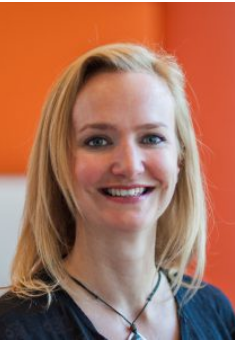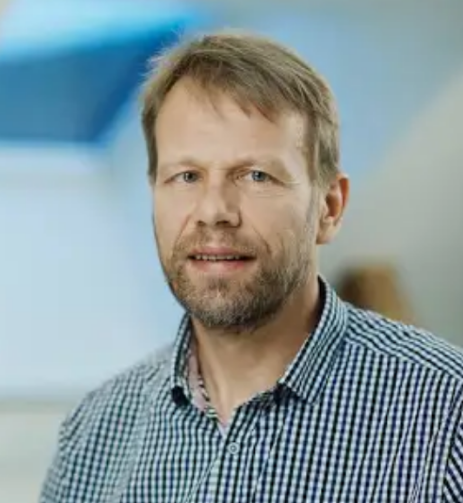Keynotes
Workarounds are Everywhere! We’d Better Use Them.

Inge van de Weerd
Abstract: Workarounds emerge when users adapt technology to their specific needs, often by intentionally using software in unintended ways or by creating alternative methods to accomplish their tasks. Workarounds are widespread across organizations in various sectors. In this keynote, we will explore the valuable insights that workarounds offer, particularly as they highlight mismatches between software, the processes it supports, and the users who interact with it. This keynote will introduce innovative approaches for the automatic detection of workarounds and provide an overview of the keynotes’ latest empirical research. We will illustrate how process mining techniques can be utilized to study the emergence, evolution, and diffusion of workarounds within organizations, offering a powerful tool for understanding and enhancing both processes and software. Additionally, we will demonstrate how process mining techniques have been applied to reveal the significant impact that new software implementations or updates to existing software can have on the dynamics of workarounds.
Bio: Dr. Inge van de Weerd is an Associate Professor in the Process Science group at the Department of Information and Computing Sciences, Utrecht University. Prior to her current role, she held academic positions at the Vrije Universiteit Amsterdam (2012-2018) and Utrecht University (2009-2011). Dr. van de Weerd earned her PhD from Utrecht University in 2009 and spent the spring and summer of 2008 as a visiting researcher at the Tokyo Institute of Technology. Her research expertise lies at the intersection of IT and organizational processes, with a particular focus on process mining, workarounds, process drift, and robotic process automation. Dr. van de Weerd has authored over 100 publications, with her work appearing in leading conference proceedings such as BPM, Process Mining, ECIS, and ICIS, as well as in prestigious journals including Business & Information Systems Engineering, Computers in Industry, and Information & Management.
Successful Cost-Benefit Management of Agile Software Development Projects

Magne Jørgensen
Abstract: The primary criterion for success in software development is that it enables the realization of sustainable benefits (value, profit, gains, etc.) for users, clients, and other stakeholders and that these benefits are sufficiently large to make the investment (i.e., the cost) worthwhile. Despite this pretty obvious criterion, most software development processes, including those belonging to the family of agile processes, often seem to have their main focus elsewhere. In this presentation, I will report on results from our empirical studies over the last ten years to give a better understanding of how to successfully integrate cost-benefit management practices and roles in agile software development contexts. The studies give results on planning the realization of benefits, implementing continuous benefits management, designing the role of a “benefits responsible”, and evaluating the realization of benefits. In general, the studies find a positive effect of benefits management practices on benefits realization but also a lack of maturity in implementing such processes. We find, among others, that the benefits management practices have a better effect in agile compared to non-agile software development contexts, and that the practices were easier to implement and did not conflict with agile principles and values. A surprising finding was that, in general, the front-end (requirements analysis and planning) phase of agile software development typically did not differ from that of non-agile software development. For example, the time spent, the level of detail of specifications, cost-benefit analyses, and plans, and the planning methods were typically the same for agile and non-agile software development. I discuss why agility has not yet impacted the front-end phase of software development and to what extent it would benefit from more agility, such as the use of ”just in time” specifications and a stronger emphasis on flexibility in the definition of scope and plans.
Bio: Magne Jørgensen is a professor at Simula Metropolitan and Oslo Metropolitan University and a guest professor at Kathmandu University. He has extensive industry experience as a consultant and manager and currently serves on the Norwegian digitalization board, where he advises governmental software projects and is the manager of the governmentally funded research center “Efficient Software Development in the Public Sector”. He has written about 200 research articles on project management, evidence-based software engineering, cost estimation, research methods, and human judgment.
Ethics In Practice: How It Influences the Software We Build

Michiel Overeem
Abstract: Business software plays a pivotal role in driving the growth and operations of many successful companies. When confronted with changes in the behaviour or failures of this software, the very survival of a company may be at stake. This gives software suppliers great responsibility and power. This keynote explores how companies, such as AFAS, can actively incorporate ethical considerations into their software and the service they provide as part of their commitment to creating dependable, effective solutions. Drawing from experiences in product management, artificial intelligence, and licensing, we demonstrate not only how adhering to ethical practices strengthens corporate responsibility, but also contributes to a thriving and sustainable company.
Bio: Dr. Michiel Overeem is an engineering manager at AFAS Software, where he leads a team of developers who are responsible for their accounting product, AFAS SB. He is also responsible for the development of AI practices within the company. In his daily work, he combines his background as a software developer and architect with an interest in scientific research.